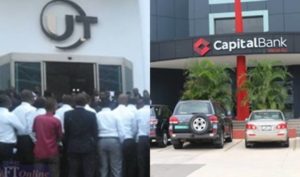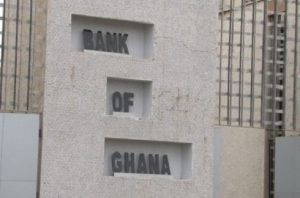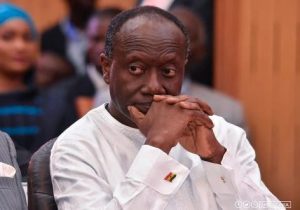
Ghana’s enthusiastic quest of deepening its foreign exchange market has given a major boost following a revelation that the central bank is putting modalities in place to surrender portions of the country’s two major export receipts directly to the market.
According to the Bank of Ghana (BoG), starting from the second quarter of 2016, portions of cocoa and gold export receipts will be made available to the open market.
The First Deputy Governor of the BoG, Millison Narh disclosed this at the opening of the 2016 two-day training workshop on ‘Improving Knowledge Base for Effective Financial and Economic Reporting’ underway in Accra.
Mr Narh in a speech read for him by the Director of Governor’s Department at the BoG, Stephen Amegashie added that the BoG intends to engage with the media the more bearing in mind that “such a collaboration has the ability to move financial markets, enhance predictability of monetary policy decisions and potentially to help the bank’s macroeconomic objectives”.
Strengthening the autonomy of BoG
Furthermore, “to strengthen the autonomy of the Bank of Ghana, there is also a push for amendments of the Bank of Ghana Act to strengthen the autonomy of the central bank to implement monetary policy effectively, by reinforcing the independence of the board and Monetary Policy Committee and put clear limits on central bank financing of government.
The BoG, Mr Narh indicated had initiated a number of reforms aimed at ensuring that the financial system remains strong and stable. To this end, a number of bills are under consideration at the legislature.
The Banks and Specialised Deposit-Taking Institutions Bill when finally approved is meant to bridge the gaps associated with consolidated supervision, bank resolution and other weaknesses identified in the existing legal framework.
While the Ghana Deposit Protection Bill, according to Mr Narh when passed would provide a protection for the small depositor as a result of the occurrence of an insured event.
It will also support the development of a safe, sound and efficient stable market-based financial system in Ghana, he explained.
Commendations
Touching on the workshop, Mr Narh noted that the workshop was particularly important to the BoG as it intensifies its efforts in dealing with the menace of illegal microfinance operations in the country.
The workshop which was organised by the Journalists for Business Advocacy (JBA), an offshoot of the Ghana Journalists Association (GJA) and sponsored by the Ecobank Ghana was the first of a series to be organized across the country to help journalists to fill-in knowledge gaps and to sharpen their skills.
The First Deputy Governor, therefore, thanked the organizers and sponsor for this undertaking which would without doubt contribute to enhancing financial and economic news reporting among journalists in the country.
The Ecobank Head of Corporate Communications Ghana and West African Monetary Zone (WAMZ) Region, Rev. Mrs Patricia Sappor, said: “Ecobank, the pan African bank is very delighted to be associated with the Journalists for Business Advocacy group and is proud to have had the privileged to be a significant sponsor for this workshop, three years in a row”.

“In our commitment to the vision of contributing to the financial integration and economic development of Africa and for that matter Ghana, Ecobank cannot overlook the development of the private sector and Small and Medium Enterprises (SMEs) in the country as they contribute immensely to the growth and development of the country, by their contribution to job creation and Gross Domestic Product (GDP).
Rev. Mrs Sappor acknowledged the importance of the private sector and SMEs in the country could not be emphasized and for this reason, the aim of the JBA to promote private sector development and Small and Medium Enterprises (SMEs) through creative, credible and factual reportage by its members was extremely commendable.
The President of the Journalists for Business Advocacy (JBA), Suleiman Mustapha on behalf of the association thanked the management of the Ecobank for their continuous support and urged other companies to emulate the bank’s shining example.

Touching on the success stories of the JBA, Mr Mustapha noted that a research undertaken by JBA indicated that Metropolitan, Municipal and District Assemblies (MMDAs) were either not aware or not concerned about the plight of SMEs, but were only interested in collecting levies from them.
“The advocacy by JBA has resulted in positive change in policy and programmes in some districts,” he stated. Instructively, the JBA was established out of GJA’s special two-year project dubbed “Using the Media to Strengthen Business Advocacy”.
The project, co-facilitated by KAB Consult, and sponsored by the Business Advocacy Challenge (BUSAC) Fund, begun in 2006, under the theme “Using the Media to Promote Small-Scale Business Concerns.”
Under the project, a core team of journalists undertook capacity development in business advocacy to create a multimedia platform to discuss the concerns of business, particularly SMEs. In Ghana the SMEs account for 90 per cent of enterprises of the economy, contributing about 60 per cent of employment and about six per cent to GDP.
By Masahudu Ankiilu Kunateh, African Eye Report





